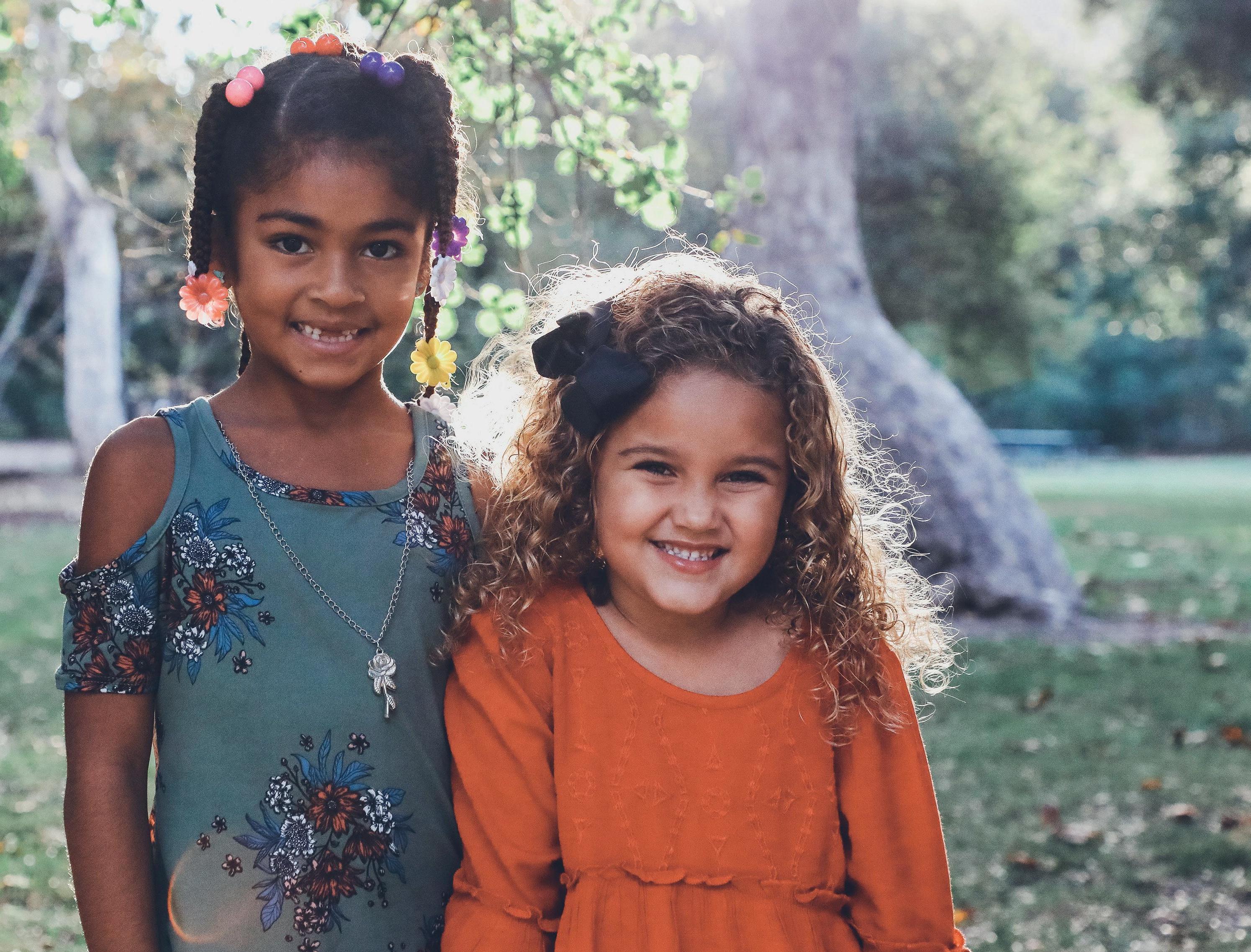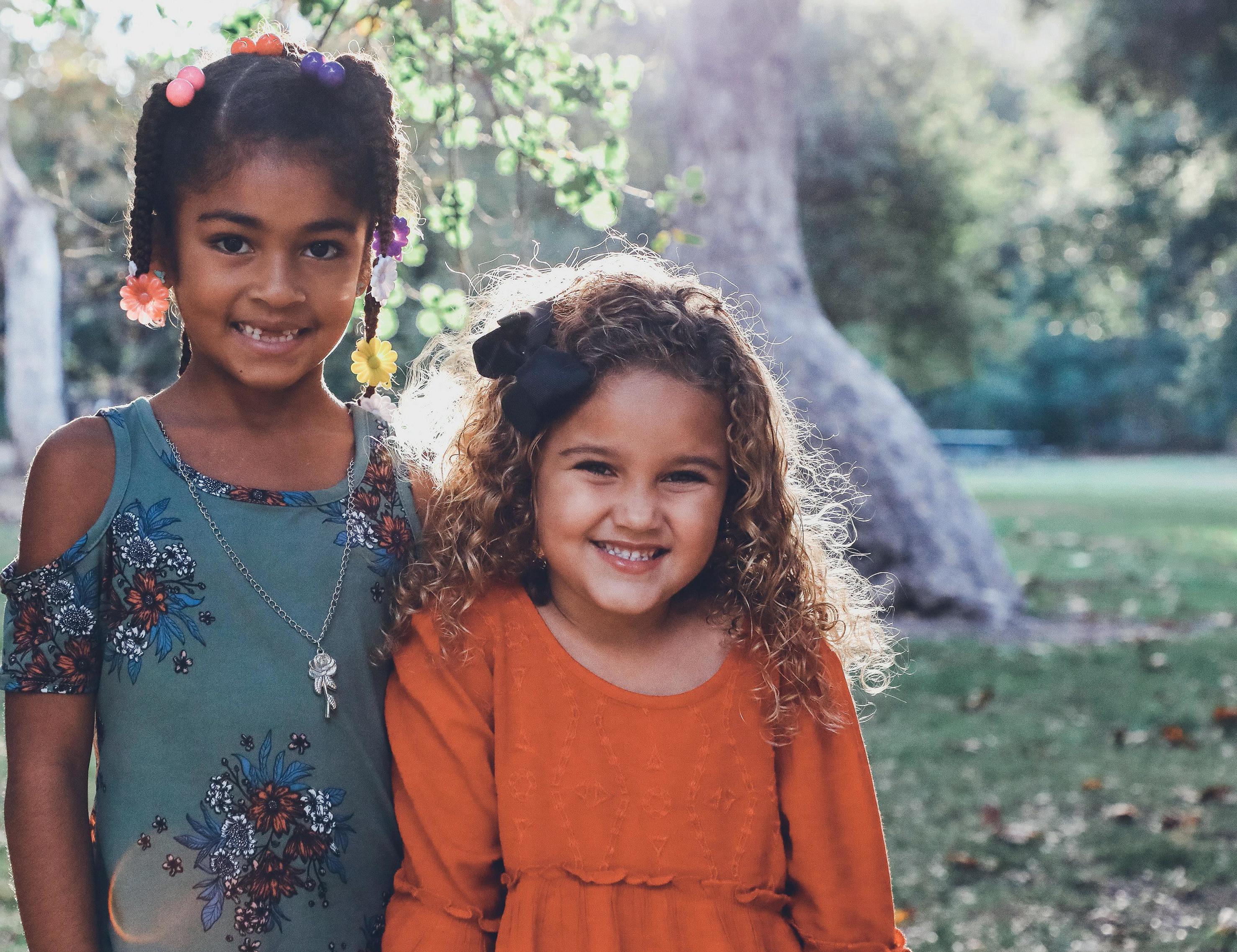
8 minute read
Growing Up In The Third Culture
WRITTEN BY TANYA CROSSMAN
Millions of children around the world right now are growing up in countries where they do not have citizenship or permanent residency, and do not have an expectation of permanence. They are not having the same childhood experiences of peers in their passport countries. They have no legal right to stay in the countries where they are growing up. Their childhood is happening in between – in the Third Culture.
Advertisement
What is a Third Culture Kid (TCK)?
Third Culture Kid (TCK) is a term used to describe people who spend a significant part of childhood living outside their passport countries. Even where the acronym TCK is fairly well known, it is often misunderstood. Most people assume that the “Third” part of a “Third Culture Kid” means my first country (home) plus my second country (where I live) equals a mixed up third culture – but we aren’t talking about simple addition.
Many TCKs are connected to more than two or three cultures. In fact, most TCKs I know have encountered more than three or even four countries. This leads them to wonder if they should be called “Fourth Culture Kids” or “Fifth Culture Kids.” They instinctively know that three countries can never sum up all of who they are. But the three cultures of a Third Culture Kid are not how many countries influence a person. Instead, they are three types of cultural influence.
First Culture: Legal Culture
A legal culture is any country in which I have legal recognition. That is, the government grants me citizenship or permanent residency (green card or equivalent). I have legal rights of access, and legal responsibilities as well. 35% of TCKs have more than one legal culture.
Holding a passport does not automatically confer experiential connections. The experience of growing up in places where I do not have legal recognition has an emotional impact. The country I legally belong to may not completely feel like home, as I did not share all the same childhood experiences of peers who spent all of childhood there.
“Singapore has always been very foreign to me, but when people asked where I was from, I replied: “Singapore.” It was a reflex. In high school, when people asked where I was from, I still said Singapore, but I knew it simply meant the country printed on my passport. — Stephanie, 20” Misunderstood, page 254
Second Culture: Geographic
The second category of cultures are Geographic Cultures. These are cultures I experience first-hand, where I have been physically present. I am legally connected to my legal cultures; I am experientially engaged with my geographic cultures. First cultures are legal realities, whereas second cultures are geographic realities – places I have spent time and made memories. Many TCKs have multiple second cultures. 40% of have four or more geographic cultures; 10% have six or more.
This category can also include “heritage cultures.” A heritage culture is a culture I have no legal connection to, and have never lived in, but engage with meaningfully throughout my childhood because it forms part of my family’s cultural heritage. For example, if my parent immigrated from a country I have never lived in or had citizenship from, but I engage with this cultural heritage through my senses and thought-processes (i.e. values, language, food, music).
“My parents were born and raised in Korea and moved to the States after high school. . . We celebrated both American Thanksgiving and traditional Korean New Year. We visited relatives both in Korea and in the States. And all this happened as we grew up in China. — Eugene, 21” Misunderstood, page 96
Third Culture: Relational
While the first and second cultures are primarily about place, the third culture is about experience: the experience of growing up between first and second cultures that do not perfectly align. Many people grow up in a country where they have legal recognition — their first and second cultures are one and the same. They have comprehensive connection to place that centres their childhood experiences. The Third Culture is the childhood home of those who did not experience comprehensive connection to a single place as children.
For many TCKs there is comfort and understanding in having a shared Third Culture, especially when feeling out-of-step with both Legal and Geographic cultures. Some TCKs have no overlap in their first and second cultures. That is, they have never lived in the places they have legal recognition, and have no legal recognition in the places where they do live.
“As a TCK, I often feel that I cannot truly relate to those around me. I function in two worlds at once. I have gained a broad knowledge of the world while missing the more specific aspects of cultural understanding that come with spending a lifetime in one place. — Heidi, 24” Misunderstood, page 23
The Third Culture is a Relational Culture – woven together from overlapping experiences of life lived in between. It embraces people who share a childhood not geographically but experientially. TCKs do not grow up in any one culture, but in between them, influenced by multiple cultures. Two TCKs with no overlaps in their first and second cultures do not share a place and yet still share a childhood experience. In the Third Culture they find the comfort and connection of shared experience, and it becomes a place of belonging.

“The Third Culture is our home. It is where we “belong” and relate to people as others do in their hometowns. – Lisa, 24” Misunderstood, page 7
Shaped by the Third Culture
During childhood we learn about the world around us, and how to live in it. We develop strategies for survive and to thrive in our environment. Every community has different social norms, different communal strategies. Children who grow up in more than one place, or exposed to more than one way of thinking, develop a different outlook on life than children who grow up in a single place and exposed to a single way of thinking.
Why does this matter? Because many TCKs are growing up quite differently than their parents did. While they currently live life together – moving to the same countries, or living in the same place – their experiences of childhood are fundamentally different. TCKs experience cross-cultural life as a formative experience: something that is shaping how they understand and respond to the world around them.
Third Culture Life in the 21st Century
Even when parents had cross-cultural childhoods themselves, and therefore have some overlap in worldview, the experience of growing up between countries and cultures is very different now than in was 20, 30, or 40 years ago. TCKs born after 1985 are twice as likely to have lived in an “expat bubble”, more likely to have attended an international school, and far less likely to have attended boarding school (10% as opposed to 50%).
Changes to travel and communication over time changed the emotional experience of TCKs. The first research into TCKs was done in the 1960s. At this time, most families living abroad travelled by ship and spent years in the host country without returning. They had little if any contact with friends and family back home while they were away.
The term TCK became more widely known in the 1980s, by which time air travel was more accessible and affordable. Most families travelled “home” once every two years. Communication with friends

and family in other places was easier, but still infrequent. Even as travel sped up, communication at this time was still slow. When a family moved, they were unlikely to stay in touch regularly. They created a new life with new people in a new place.
The situation for today’s TCKs is very different. The internet allows people to keep in close and regular contact. TCKs can maintain connections with the people and places that matter to them, no matter where life takes them. This is great! Time given to connecting virtually, however, is time that cannot be invested where they live now. They grow up juggling relational commitments in various places.
“People who haven’t moved as much or as far do not understand that it is usual for TCKs to have more than one best friend. They are my best friend in this circumstance and this location. I don’t expect all of those friends to say I’m their only best friend, we all have many. — Callie, 17” Misunderstood, page 16 2-3 months a year outside the country in which they live. They can see friends and family in other places more frequently and experience a passport country they are not living in. This is great! The drawback is that they are caught more in-between than previous generations of TCKs.

“62% of TCKs born after 1985 said that ‘feeling in between’ was a significant part of their childhood experience (compared to 46% of older TCKs).” Misunderstood, page 4
This increased sense of living in between means the Third Culture is becoming more important as a space of belonging, identity, connection and understanding. The Third Culture is neither a legal nor a geographic entity – but it is real and powerful for those who find meaning in the sense of shared experience they find there. Many TCKs first feel the true power of this after they leave international communities – and realise that for perhaps the first time, they have truly left home.










